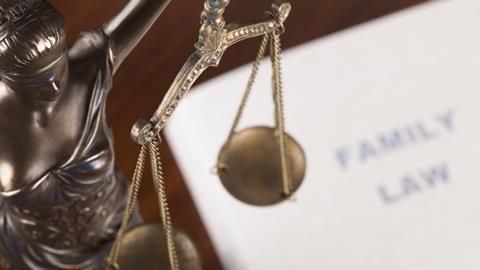Family lawyers are being urged to help the Law Society lay bare the economic reality of doing legal aid work to show the government why more cash is needed to save the fragile sector.
Chancery Lane commissioned Frontier Economics to identify the costs of applying for and maintaining a civil legal aid contract, and the associated profits or losses from doing housing legal aid work. It now wants to do the same with family legal aid.
Society president Nick Emmerson said: ‘In February, the Law Society published the results of its analysis of data from housing legal aid providers. It provided us with vital information as we continue to lobby the Ministry of Justice to make real and lasting changes to the civil legal aid market and ensure its future.
‘Now we are embarking on the next stage of our research – family law providers – and we are calling on the profession to help us with this. We want family law practitioners to sign up to take part in this research, so we can get a fuller picture of the issues facing the sector and continue to provide evidence as to why the UK government should invest in civil legal aid.’
Family is one of 11 contracted areas of law that the government is looking at as part of a major civil legal aid review.
In its submission to the ministry’s call for evidence, Chancery Lane said the introduction of fixed fees in 2009 combined with the scope of legal aid cuts in 2013 caused major problems.
‘All private family law work was cut from scope apart from cases involving domestic abuse or child abuse. This had a significant impact on the mix of cases available to practitioners. By their very nature the remaining cases were the most complex, but the standard fee remained the same with no ability to cross subsidise from simpler cases,’ the Society said.
The provider base more than halved over a decade due to ‘unsustainable fee levels’.
The Society has called for legal aid funding to be restored for early advice in all private law family cases, higher fees for early advice in public law family cases and solicitors to be given delegated powers to confirm that a client is a victim of domestic abuse.
Lawyers interested in helping the Society with its research should fill in the following form by 1 March.




























4 Readers' comments